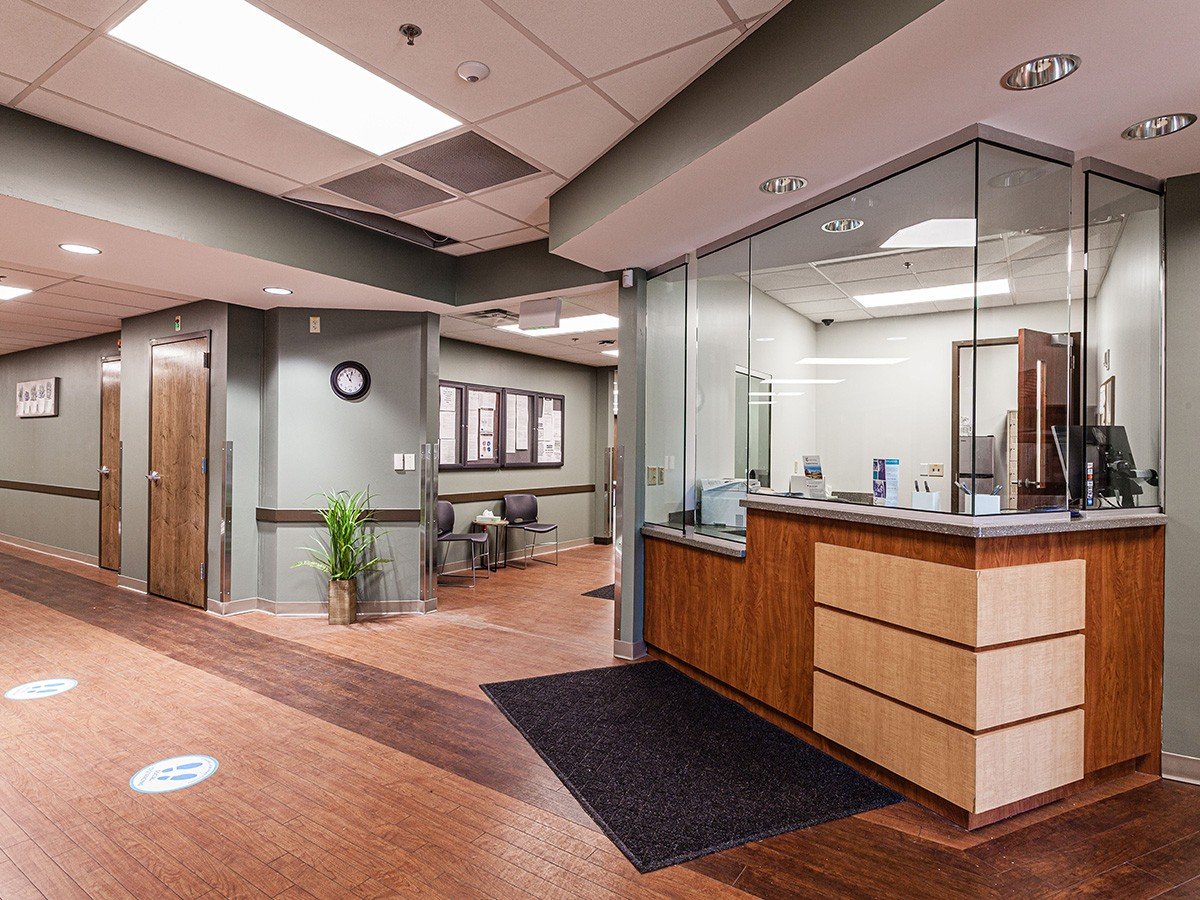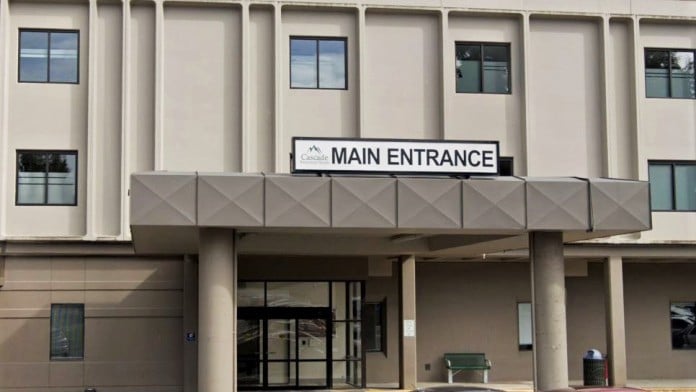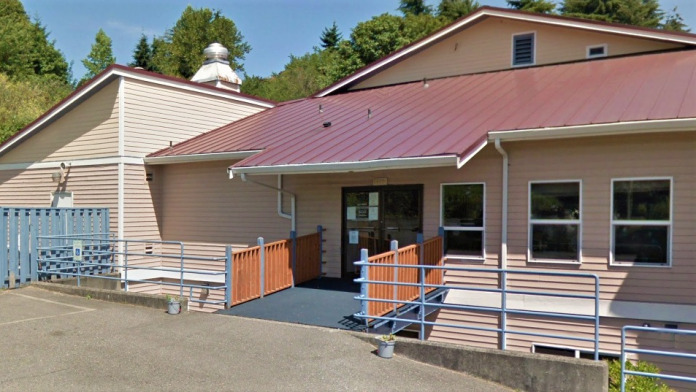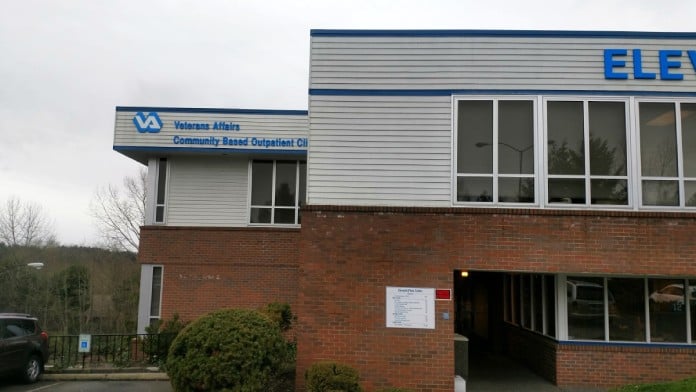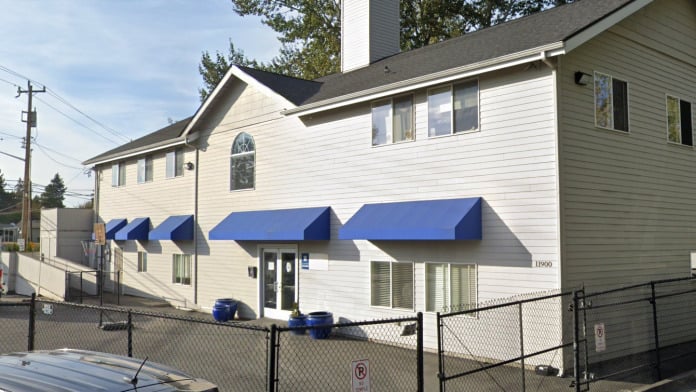I am current in treatment about 6 weeks in. The education and coping skills I have already obtained there have made night and day difference in my life at home, at work, and in the mirror. The staff there have always been caring, supportive, attentive and genuine. I can't ...
About New Freedom Recovery Center
Located in Bonney Lake, Washington, is the New Freedom Recovery Center. This is an organization that provides assessment, placement, and treatment services to adults and adolescents who are struggling with a substance abuse disorder or co occurring mental health struggle.
There are also programs here that serve the needs of justice involved individuals who have DUI or DWI charges. All of their programs are offered in an outpatient setting. They accept policies from most major insurance providers and have payment plans as well.
Comprehensive Intake and Treatment Process
Anyone seeking support here will first undergo an assessment over the phone to determine what health struggles you’re facing, what your recovery goals are, and what an appropriate treatment program might look like for you.
There are age appropriate programs for both adolescents and adults here. Their youth programs focus heavily on education and treatment services that allow kids to build the foundational skills to help guide their life in the right direction. There are programs for at risk youth as well as an intensive outpatient program for adolescents who have a chemical dependency.
If you or your child’s circumstances require more robust services like detox or inpatient treatment, New Freedom Recovery Center can make recommendations and referrals to partner and community agencies.
Recovery Through the 12 Steps
You’ll find that this treatment facility focuses heavily on the 12 step recovery process. The 12 steps allow you to build a sense of community, get to know other peers in recovery, and help you recognize that you’re not alone in your journey to sobriety.
You’ll work intently with your counselor to explore the root cause of your health struggles and this is done through individual, group, and family counseling sessions. Within these counseling sessions, evidence based approaches like cognitive behavioral therapy are used to help you pinpoint triggers, stressors, and other obstacles that have played a role in your substance use struggles in the past.
Relapse Prevention
This organization works with individuals who are at risk or have undergone a relapse in the past. With their relapse prevention program, you’ll work closely with your care team and counselors to learn how to navigate social pressures, manage anger, build your communication skills, and navigate circumstances that might trigger a relapse.
Latest Reviews
Rehab Score
Gallery
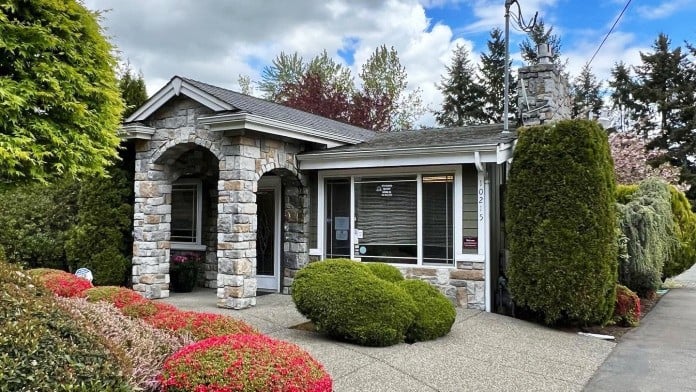

Accepted Insurance
Other Forms of Payment
Private insurance refers to any kind of healthcare coverage that isn't from the state or federal government. This includes individual and family plans offered by an employer or purchased from the Insurance Marketplace. Every plan will have different requirements and out of pocket costs so be sure to get the full details before you start treatment.
Self-pay involves paying for treatment out of your own pocket. You can use savings or credit, get a personal loan, or receive help from family and friends to fund your treatment. If you don't have insurance or your insurance plan doesn't cover a specific program, self-pay can help ensure you still get the care you need.
Military members, veterans, and eligible dependents have access to specific insurance programs that help them get the care they need. TRICARE and VA insurance can help you access low cost or no cost addiction and mental health treatment. Programs that accept military insurance often have targeted treatment focused on the unique challenges military members, veterans, and their families face.
Addiction Treatments
Levels of Care
Outpatient Programs (OP) are for those seeking mental rehab or drug rehab, but who also stay at home every night. The main difference between outpatient treatment (OP) and intensive outpatient treatment (IOP) lies in the amount of hours the patient spends at the facility. Most of the time an outpatient program is designed for someone who has completed an inpatient stay and is looking to continue their growth in recovery. Outpatient is not meant to be the starting point, it is commonly referred to as aftercare.
Intensive Outpatient Programs (IOP) are for those who want or need a very structured treatment program but who also wish to live at home and continue with certain responsibilities (such as work or school). IOP substance abuse treatment programs vary in duration and intensity, and certain outpatient rehab centers will offer individualized treatment programs.
12-step programs are addiction recovery models based on Alcoholics Anonymous (AA). A number of substance abuse programs (including some drug and alcohol rehab centers) use the 12 steps as a basis for treatment. Beginning steps involve admitting powerlessness over the addiction and creating a spiritual basis for recovery. Middle steps including making direct amends to those who've been hurt by the addiction, and the final step is to assist others in addiction recovery in the same way. 12-Step offshoots including Narcotics Anonymous (NA), Cocaine Anonymous (CA), Dual Recovery Anonymous (DRA), Sex and Love Addicts Anonymous (SLAA) and Gamblers Anonymous (GA).
Completing a drug or alcohol rehab program shouldn’t spell the end of substance abuse treatment. Aftercare involves making a sustainable plan for recovery, including ongoing support. Continuing care for adolescents treatment evolves from a focus of achieving drug free life and also education to learn how to address the life challenges.
Treatments
The goal of treatment for alcoholism is abstinence. Those with poor social support, poor motivation, or psychiatric disorders tend to relapse within a few years of treatment. For these people, success is measured by longer periods of abstinence, reduced use of alcohol, better health, and improved social functioning. Recovery and Maintenance are usually based on 12 step programs and AA meetings.
Effective drug rehab in Washington integrates care for the whole person, offering comprehensive solutions to addiction. Treatment methods address mental, physical, and relational aspects of substance abuse.
Many of those suffering from addiction also suffer from mental or emotional illnesses like schizophrenia, bipolar disorder, depression, or anxiety disorders. Rehab and other substance abuse facilities treating those with a dual diagnosis or co-occurring disorder administer psychiatric treatment to address the person's mental health issue in addition to drug and alcohol rehabilitation.
Opioid rehabs specialize in supporting those recovering from opioid addiction. They treat those suffering from addiction to illegal opioids like heroin, as well as prescription drugs like oxycodone. These centers typically combine both physical as well as mental and emotional support to help stop addiction. Physical support often includes medical detox and subsequent medical support (including medication), and mental support includes in-depth therapy to address the underlying causes of addiction.
Substance rehabs focus on helping individuals recover from substance abuse, including alcohol and drug addiction (both illegal and prescription drugs). They often include the opportunity to engage in both individual as well as group therapy.
Programs
Adult rehab programs include therapies tailored to each client's specific needs, goals, and recovery progress. They are tailored to the specific challenges adult clients may face, including family and work pressures and commitments. From inpatient and residential treatment to various levels of outpatient services, there are many options available. Some facilities also help adults work through co-occurring conditions, like anxiety, that can accompany addiction.
Young adulthood can be an exciting, yet difficult, time of transition. Individuals in their late teens to mid-20s face unique stressors related to school, jobs, families, and social circles, which can lead to a rise in substance use. Rehab centers with dedicated young adult programs will include activities and amenities that cater to this age group, with an emphasis on specialized counseling, peer socialization, and ongoing aftercare.
Clinical Services
Research clearly demonstrates that recovery is far more successful and sustainable when loved ones like family members participate in rehab and substance abuse treatment. Genetic factors may be at play when it comes to drug and alcohol addiction, as well as mental health issues. Family dynamics often play a critical role in addiction triggers, and if properly educated, family members can be a strong source of support when it comes to rehabilitation.
Group therapy is any therapeutic work that happens in a group (not one-on-one). There are a number of different group therapy modalities, including support groups, experiential therapy, psycho-education, and more. Group therapy involves treatment as well as processing interaction between group members.
In individual therapy, a patient meets one-on-one with a trained psychologist or counselor. Therapy is a pivotal part of effective substance abuse treatment, as it often covers root causes of addiction, including challenges faced by the patient in their social, family, and work/school life.
Staff
Rob Long, SUDP
Executive Director
Contact Information
10215 214th Avenue East
Bonney Lake, WA 98391




